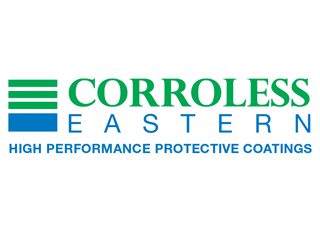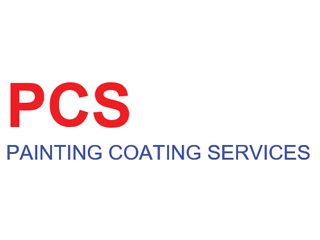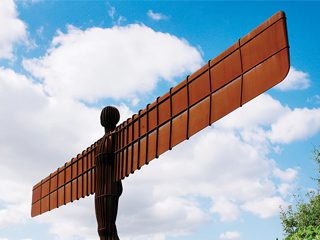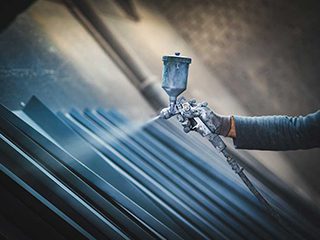
Institute News
Corroless Eastern are a distributor of Corroless anticorrosion materials and a multi-disciplined coatings and repair contractor. The business was founded by Andy Hunt in 1992, initially focusing on the distribution of Corroless coatings materials, but branching out into the application of protective coatings.
A particular area of focus for the business has always been the application of tank linings, initially using Corroless materials but now also other manufacturers.
Over the last 20 years, another area of expertise has been the application of fast set polyurea coatings and membranes, with a particular focus on training adhering to the Polyurea Development Association standards.
Training and development of their team is core to the business, including 7 ICorr trained paint inspectors. They also have their own in house ICATS trainer.
Recent investments in the business include the purchase of two Hammelman Ultra high-pressure water jetting units used for both surface preparation and hyrdodemolition. Using this new equipment has allowed them to extend the scope of refurbishment works they can undertake, facilitating larger concrete repair contracts prior to the application of protective linings.
As a diverse contractor they also undertake significant resin flooring contracts, which is often considered an industry in itself. This includes sub floor repairs where required and the application of trowel applied resin screeds.
Some of the areas the company works in include, defence, utilities, food production and general industry. Based in East Anglia but working across the UK exposes them to a variety of projects and challenges.
In 2022 they celebrated 30 years of business and look forward to being members of the ICorr community.

Ask the Expert
The question in this issue looks at the role of an inspector.
Question:
What makes a good coating inspector? CM
Answer:
This is an interesting question and has numerous answers in my opinion. Having worked in industry for some 40 odd years, and been on all sides of the fence including sitting on it, I feel I am able to give the following judgements.
The first and foremost criterion to be met is that an inspector needs to be completely independent and must not have their judgement swayed by allegiances or obligations. Until the advent of the ISO 9001, inspectors were employed by clients to provide objective and impartial viewpoints from an unbiased stand point, providing accurate and valid reports on the performance of a contractor’s work. They were generally put on site to act as a ‘Jiminy Cricket’ to witness, observe, and report back, as to what was going on, this, if done well would ensure that the contractor would be less likely to cut corners and use improper practices.
Up until 1987, BS5750 had been the governing system in the UK for business management but the arrival of ISO 9001 saw this coming to an end and the introduction of self-certification for contractors, this effectively destroyed the impartial third party inspection in the UK with an overnight hammer blow. Inspection in an instant became the domain of the contractor and many unscrupulous contractors immediately saw this as a license to print money as the poacher became both poacher and gamekeeper overnight. This led to the demise of many of the highly reputable inspection companies over the next few years.
It wasn’t until several years later when the clients started to actually look at, and audit, the works being undertaken under the ISO 9001 banner did they start to realise that things were not all that they seemed. From this a drive started to push forwards to try to put in place mitigation to prevent this from happening again.
The other major stumbling block that has often prevailed is the attitude of individuals who see inspection as unnecessary and a cost best avoided, how often do we hear the fateful words ’how difficult is it to paint a bit of steel? My wife manages to paint the house so it can’t be difficult at all!’ WRONG! Our business is highly technical and calling it painting is a huge mistake, paint is cosmetic and decorative! What we are involved in is the application of high-performance protective coatings and so we need people with a high level of technical knowledge to administer, as well as a well-trained and understanding workforce.
A properly constructed specification and contract is now seen as the best way forward to ensure contractor inspection is fit for purpose and that the personnel are properly trained and certified via a recognised body as competent.
From this we need to look at what the inspector’s role should be today, and what makes a good inspector. Inspection needs to be stand alone, you cannot blast or coat a piece of steel then inspect it and certify it yourself, as unfortunately still so often happens.
Many coating inspectors have worked their way up through the ranks and prove to be highly suitable and capable to undertake the coal face inspections. With the aid of quality training and access to all the right equipment, these people provide a solid and reliable backbone to the industry. What they do need is a proper and competent system of support, both from more highly qualified and experienced inspectors controlling and monitoring them, and with a management team that appreciates the true ramifications and the importance of inspection.
A good basic inspector should therefore be someone who is truly enthusiastic about his role and understands that he must at all times be an observer and not try to run the job, his role is the duty to collect and collate information, and report back to line management with his findings, and not get involved in front line confrontation. That does not mean to say that he cannot be authorised to discuss what he finds with the foreman or other management on the project but telling a worker what to do by bypassing the chain of command generally
ends up badly.
A basic inspector is not a basic person, he needs to have a large amount of experience and understanding of how the jobs are undertaken and the limitations of what is trying to be achieved. A good technical grounding is essential as well as the ability to communicate clearly, concisely, and correctly. One of the absolute essentials is training by a recognised training body with certification stating that the inspector has been trained and assessed to a given level and what they are competent to undertake and what level of supervision they require. For example the ICorr Coating Inspector training courses delivered by IMechE Argyll Ruane.
The knowledge required as an inspector moves further up the hierarchy, and becomes more varied and more technical. Ideally when the levels of dealing with contracts, documentation, auditing and failure analysis are reached, very comprehensive inspection training is needed as well as other technical qualifications such as degrees in chemistry, organic chemistry, metallurgy and materials, or process engineering. This gives the necessary level of understanding and authority to state the case when decisions need to be made and if necessary enforced.
An inspector’s life is not a simple one, and having an open mind, unbiased view point, an inquisitive nature, a strong, unwavering sense of right and wrong, a good sound training background along with something resembling a sense of humour and the hide of a rhinoceros, all go a long way to making a good inspector.
Simon Hope
Auquharney Associated Ltd.

Institute News
PCS painting coating services, founded in Egypt, was established 13 years ago, working in the painting, insulation, fire proofing fields, equipment rental, manpower supply and scaffolding services. Its owner and MD is Ali Hassan, BSc in petroleum engineering, and certified BGSCSWIP grade 1 painting inspector.
The company uses the latest technology in painting and coating services, to maintain the integrity and safety of customer assets, working to achieve the best quality in accordance with international standards
Recent PCS success stories include, the paint application to 120,000m2 on a double-swing rail bridge across the new Suez Canal with Egyptian Ministry of Defence (this bridge ensures the convenient travel between the two sides of the canal without interfering the daily passage of vessels along the canal), and supervision of the existing coating, hot/cold insulation, and fire proofing maintenance at the United Gas Derivatives, PS and Damietta Plants.

Institute News
Following a successful event in December 2022 that re-started the activities of the branch in the North East, further events are planned for 2023. Atmospheric Plasma Solutions will present their cold plasma technology which can be used to remove coatings and contamination from substrates, on 13th April. Used by the US Navy, this technology offers an interesting alternative to tradition preparation methods. The evening will be held at Metec’s facilities in South Shields, and will include a presentation and live demonstration of the technology followed by refreshments and networking opportunities. Metec is located near to the Bede Metro Station for easy access by public transport and there is ample parking.
On 22nd and 23rd June 2023, the branch will host the “Integrity Engineering for a Sustainable Future” conference, featuring a day of presentations on sustainable technology and solutions at Neville Hall in the centre of Newcastle upon Tyne, followed by a second (optional) day of site visits to sustainable businesses in the area. There will also be a gala dinner held at Neville Hall on the evening of the 22nd. Tickets will be released soon for what will be a popular event, keynote speaker is Jon Gluyas from Durham university, as well as presentations from BP and ESR Technology amongst others. There will also be an exhibition area for businesses wishing to promote their services (please contact nechair@icorr.org for further details). Anyone who has not visited Neville Hall will be in for a treat as it is one of the finest buildings in Newcastle upon Tyne and used by the Mining Institute. It is a Victorian building built at the time when high-Gothic architecture was coming into fashion, and a unique place to hold a conference like this.


